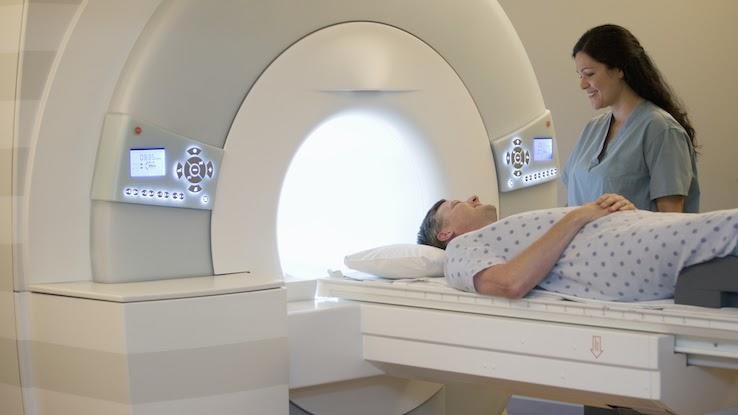
A computed tomography (CT) scan, also known as a computerized axial tomography (CAT) scan, is a procedure that takes X-ray images of certain areas of your body from different angles to create a detailed image of your organs, bones, blood vessels, and other body structures and systems. Doctors use this diagnostic tool to look for internal bleeding, monitor diseases, check for cancerous tumors and help prepare patients for other procedures.
There are several potential factors that may cause you to consider an alternative procedure: CT scans use a small amount of radiation, sometimes the dyes can cause allergic reactions and there’s a risk, though it’s low, of developing cancer. Before you undergo a CT scan, take a look at these questions to think about and ask your healthcare provider.
Why Is the Test Being Performed?
The first question to ask your healthcare professional is about why they’re advising the need to perform the test. You may have already been provided with a general explanation, but there’s always the chance the test is unnecessary, and it’s your right to know if this is the case. It’s also important to ask if the test is essential for your treatment and whether not going through with the procedure could make a difference in your diagnosis.
What Are the Potential Risks and Side Effects?
Side effects of CT scans are considered rare. However, it’s still important to discuss your risk factors with your healthcare provider, as your particular condition may increase the chance of complications. For example, people with diabetes are at a higher risk of developing kidney toxicity from the contrast dye that’s utilized during the test, and certain individuals may experience allergic reactions during the procedure or following it. Anyone who may be pregnant should also let their healthcare provider know, as the radiation may be harmful to the fetus. Parents should also talk to their provider if their child needs a CT scan, as children are more at risk when undergoing radiation.
Are There Any Safer Alternatives That Don’t Require Radiation?
While your healthcare professional most likely recommended a CT scan because they felt it’s the best procedure for your particular condition, it may be beneficial to request an alternative non-radiation test if possible. Alternative testing procedures that may help in diagnosing your condition include ultrasound tests and magnetic resonance imaging, or MRI, tests.
Is the Radiology Facility Credentialed?
Another important question to ask your healthcare provider is whether the facility at which your test will be performed is credentialed by a trusted accreditor, such as the American College of Radiology. The technician performing your scan should also be credentialed by a trusted accreditor.
Computed tomography scans are imaging tests that aid in the diagnosis of a variety of conditions, including cancer, blood clots, kidney stones and bone diseases. The average cost of a CT scan typically ranges between $695 and $900, depending on the part of your body that requires the test and the specific extent of the procedure. While CT scans are often necessary, it’s important for you to weigh the pros and cons of the procedure before consenting to the test. If your healthcare provider recommends a CT scan, asking these key questions can help you determine whether the test is the right choice for your particular needs.
Resource Links
https://www.cancer.gov/about-cancer/diagnosis-staging/ct-scans-fact-sheet
https://medlineplus.gov/ctscans.html
https://www.mayoclinic.org/tests-procedures/ct-scan/about/pac-20393675?p=1





